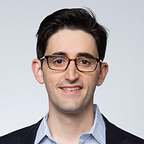Lesson 5: A team that wins doesn’t necessarily look like a bunch of winners
Ben Ouyang coached the Walt Whitman High School volleyball team for two years of my high school career. He wasn’t a titan of business. He was a guidance counselor. And his impact on my life has been profound.
My junior year of high school, Coach Ouyang took over a mediocre team of volleyball players in a region where volleyball didn’t really matter too much. In fact, it didn’t matter too much to most of my teammates. But it mattered a great deal to me. I took volleyball very seriously — playing almost every day of the year. So when a guidance counselor with no coaching experience took over the team, I naturally felt another pang of regret for my team’s potential. Only a handful of us knew anything about the sport. Only a handful of us were in the right shape to play. And my impression was our coach was just an adult being assigned to babysit.
Our team looked pretty bad when he joined us. If you stacked our individual players up one by one against other great teams, our team would lose in almost every match up.
But somehow that fact never bothered our fearless leader. Coach Ouyang had complete confidence in our ability to win. He instilled a sense of collective purpose but beyond that he built the team’s appreciation for the unique capabilities of each player. And even though we lacked a rock star team, we started winning like one because we played well together. We dethroned team after team, unseating competitors who’d been undefeated for years.
I didn’t understand the method at the time — but I was happy with the outcome. At some point, we all started believing Coach Ouyang’s message: we’d be the best team in Maryland and we’d get there fast.
I became a regular in Coach Ouyang’s office during that first season. I’d find 15 minutes here and there to drop by and talk shop. We spent a lot of time talking about the specifics of the game. But after our team’s collective mindset changed, I asked the most important question. How had he been so confident in our ability to win? For Coach, that was also an important question. It defined his approach to leadership.
The answer he gave had both simplicity and conviction; “we need to play our game.” In his mind, it didn’t matter if we looked like a polished group of players. What was more important was having a complementary group of players. He knew that our victory lay in honing in on everyone’s individual strengths. If we played together, all we needed was each of our strengths to carry each other’s weaknesses. We didn’t need six players who could set, serve, kill and play defense. We needed 12 players who could do enough of each with a commitment to covering for each other.
My senior year, we were the best team in Maryland.
It proved beyond a doubt to me you don’t have to walk into the arena looking like a bunch of winners to win. That’s a team that looks good. A team that actually wins is one with enough complementary strengths and a commitment to supporting each other toward a single purpose.
Coach Ouyang was right. He will always be. And I’ll never forget it.
